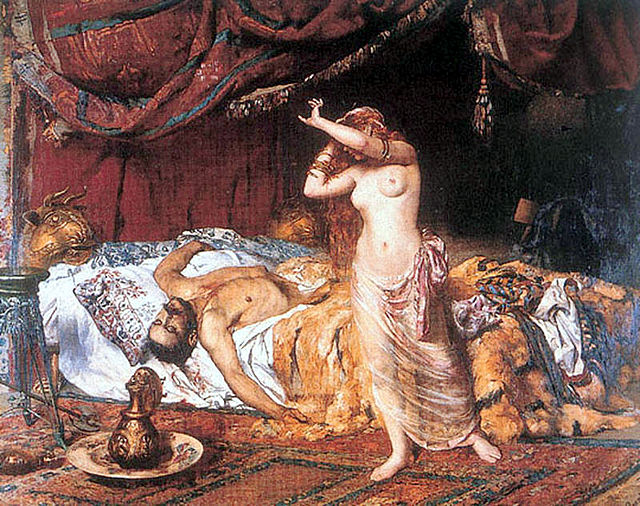Content deleted Content added
Line 2: [[File:Morte di Attila, Ferenc Paczka.jpg|thumb|upright=1.5|''Attila's death'', painting by {{Interlanguage link multi|Paczka Ferenc|hu}}]] '''Ildico''' (''fl.'' AD 453) was the last wife of the [[Huns|Hunnic]] ruler [[Attila]]. Her name is probably [[Germanic name|Germanic]], a diminutive form of the noun {{lang|gem-x-proto|*[[wikt:Reconstruction:Proto-Germanic/hildiz|hildaz]]}} ("battle"),<ref>{{cite book|last1=Gillespie|first1=George T.|title=Catalogue of Persons Named in German Heroic Literature, 700-1600: Including Named Animals and Objects and Ethnic Names|date=1973|publisher=Oxford University|location=Oxford|isbn=9780198157182|page=21}}</ref> a common element in Germanic female names (e.g. ''[[Svanhildr]]'', ''[[Brunhild|Brynhildr]]'' and ''[[Gunnhild, Mother of Kings|Gunnhildr]]''), and ''[[Hildr]]'' ("battle") was the name of a [[Valkyrie]]. Her name is thus reconstructed as *''Hildiko'' ("little Hildr"), and it is probably preserved in [[Gudrun|*''Grímhild'' or *''Krēmhild'']], the name of "Shortly before he died, as the historian Priscus relates, he took in marriage a very beautiful girl named Ildico, after countless other wives, as was the custom of his race. He had given himself up to excessive joy at his wedding, and as he lay on his back, heavy with wine and sleep, a rush of superfluous blood, which would ordinarily have flowed from his nose, streamed in deadly course down his throat and killed him, since it was hindered in the usual passages. Thus did drunkenness put a disgraceful end to a king renowned in war. On the following day, when a great part of the morning was spent, the royal attendants suspected some ill and, after a great uproar, broke in the doors. There they found the death of Attila accomplished by an effusion of blood, without any wound, and the girl with downcast face weeping beneath her veil.<ref>JORDANES. THE ORIGIN AND DEEDS OF THE GOTHS. translated by Charles C. Mierow. Transcribed by J. Vanderspoel, Department of Greek, Latin and Ancient History, University of Calgary. [http://people.ucalgary.ca/~vandersp/Courses/texts/jordgeti.html#ostro]</ref>" | |||
 Article Images
Article Images